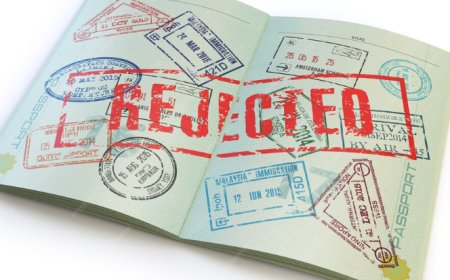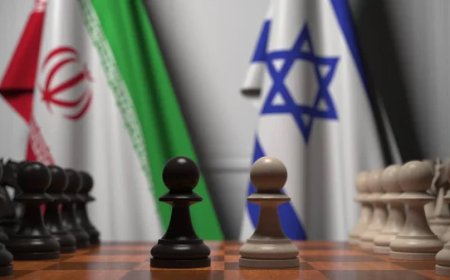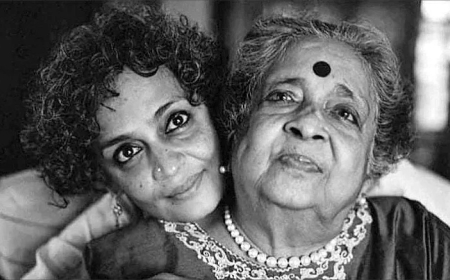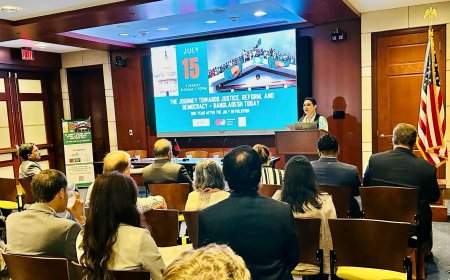How Trump’s Oval Office Became a Global Interrogation Room
The White House is now a stage for public rebuke, political theatre, and intimidation disguised as diplomacy. Within this heavily guarded mansion now lies an inner chamber not of hospitality but of strategic humiliation, where world leaders no longer meet an equal but face a prosecutorial figurehead.
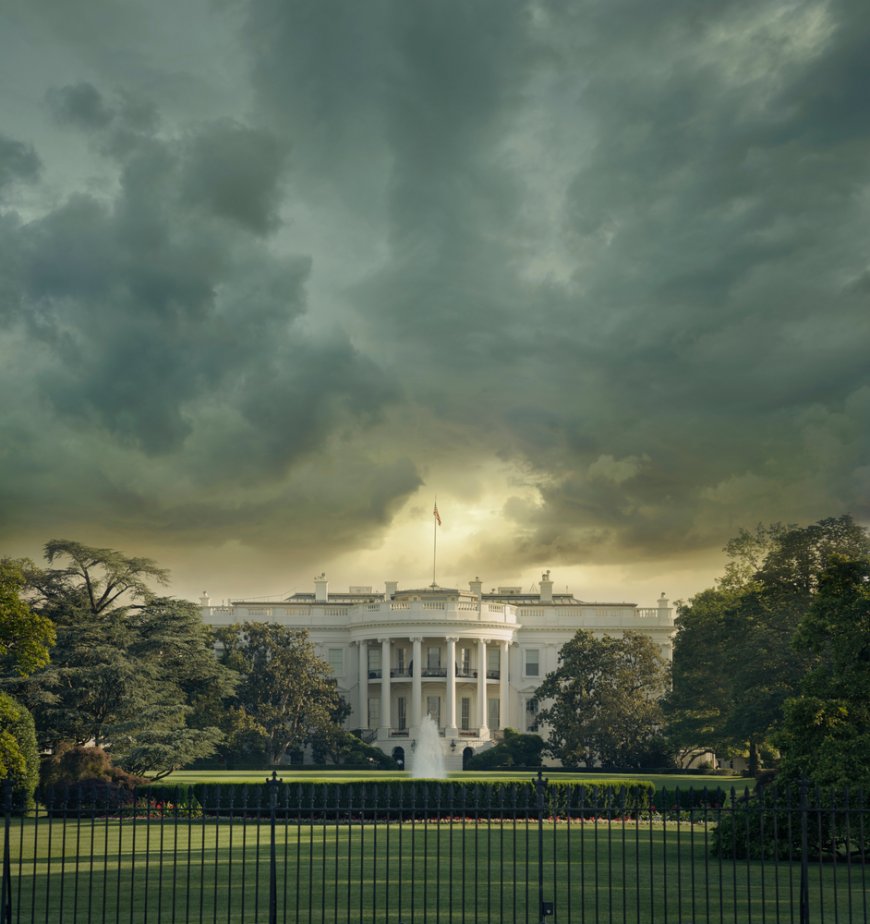
In a world accustomed to the choreography of diplomacy, the United States under Donald Trump has rewritten the script.
The White House, long viewed as a bastion of high-level statecraft, has morphed into something far less predictable -- a stage for public rebuke, political theatre, and intimidation disguised as diplomacy. Within this heavily guarded mansion now lies an inner chamber not of hospitality but of strategic humiliation, where world leaders no longer meet an equal but face a prosecutorial figurehead.
The most recent example is Ukrainian President Volodymyr Zelensky, who had arrived in Washington with hopes of finalizing a crucial mineral deal and securing assurances of continued security support. Instead, he left in silence and disappointment, his press conference cancelled, his dignity publicly bruised. The conversation in the Oval Office escalated quickly: Trump accused him of ingratitude and of "gambling on World War III." Zelensky, unwilling to appease, held his ground. But he was no match for a setting in which the rules of diplomacy had already been rewritten.
This wasn’t an off-the-cuff disruption; it was a deliberate ritual. The atmosphere reportedly shifted when lights dimmed and a curated media montage was presented, juxtaposing selective imagery with rhetorical accusations. The goal was not conversation but spectacle. When the meeting ended, Trump’s final flourish came not in dialogue, but in a post on his Truth Social platform: "When you are ready for peace, come back."
Zelensky’s encounter is only the latest in what is becoming a worrying pattern. South Africa’s Cyril Ramaphosa experienced a similarly orchestrated ambush. During what should have been a bilateral policy meeting, Trump pivoted to fringe conspiracies about so-called white genocide in South Africa. As with Zelensky, the setting was manipulated: lights down, video cued, accusations loaded. Ramaphosa, a seasoned negotiator and veteran of South Africa’s anti-apartheid movement, found himself defending against American right-wing talking points with no relevance to international cooperation.
For the watching world, these moments resemble less a diplomatic engagement and more a courtroom where the invited guest is the defendant. The charges may vary -- from ideological impurity to insufficient appreciation -- but the objective remains the same: to subdue and assert dominance. Gratitude is not only expected but demanded. Obedience is rewarded; dissent punished.
The theatrics are by design. Trump governs his international relations not as a diplomat, but as a showman. And as any seasoned performer knows, the success of the show hinges on the audience’s reaction. Every televised reprimand, every canceled press event, every viral exchange is ammunition for his domestic narrative: the strong leader who puts foreigners in their place.
To understand this shift, one need only consider how Trump conflates governance with entertainment. His second term has been defined not by treaties and alliances, but by power plays and televised confrontations. Meetings that once ended with handshakes now end with social media mic drops. Leaders from nations large and small are reduced to props in an American political pageant.
What the world is witnessing is not foreign policy but performance. And it is a dangerous one. Because behind the performative aggression lies a grim logic: undermine multilateralism, delegitimize opposing narratives, and assert unilateral control over global discourse.
If the White House was once the summit of soft power, it has now become a coliseum of hard-edged rhetoric. World leaders enter not as partners but as potential targets. Whether you represent a superpower or a fragile state, your visit is measured not by the outcomes you negotiate but by how well you play your part in Trump’s ever-expanding spectacle.
The effect of this transformation is not merely symbolic. The anxiety among diplomatic circles is palpable. International envoys now arrive in Washington not just with talking points but with contingency plans. Some even seek media consultants to help rehearse for potential ambushes. Others avoid in-person meetings altogether, preferring to engage through safer, less public channels.
One foreign minister, speaking anonymously, noted that internal briefings now include a section on "media traps and personality management" -- code for "how not to provoke Trump." Another diplomat likened the experience to stepping into a high-pressure interrogation room where any misstep could become a headline. "It’s not dialogue," he said. "It’s performance anxiety."
There is, of course, a historical precedent for intimidation masked as institutional culture. Across university campuses in South Asia, stories abound of rooms where junior students are summoned under innocuous pretenses, only to be subjected to emotional and sometimes physical torment by their seniors. These spaces are not officially sanctioned, yet they persist. They are not designed for community, but for conditioning.
The parallels are haunting. Like those poorly lit corners where the rules of engagement are unspoken but brutal, the new White House functions as a hall of power where fear replaces diplomacy. Here too, the chain of command is rigid. Here too, the goal is submission through psychological warfare. And while the bruises may not be visible, the scars run deep -- in bilateral relations, in national pride, and in the global balance of diplomacy.
What makes this new order especially dangerous is its inconsistency. Trump’s approach is not guided by a coherent foreign policy strategy, but by emotional impulses. Keir Starmer of the UK received warmth and admiration for bringing a letter from the King and praising Trump in glowing terms. Other leaders, who arrived with realism or critical points, were met with icy disdain. The line between flattery and failure is razor-thin.
This erosion of predictability in global relations makes trust elusive. Allies must now guess whether they are friend or foe, while adversaries may attempt to exploit the chaos. The United States, once a steady if sometimes domineering superpower, now resembles a capricious landlord. You may be invited in, but don’t expect the welcome to last.
There is also a moral dimension that cannot be ignored. Trump’s treatment of foreign leaders is an extension of his broader worldview: transactional, antagonistic, and deeply suspicious of difference. He dismantles norms not out of ignorance, but calculation. In his universe, deference equals loyalty, and loyalty is the currency of power.
But diplomacy is not obedience. It is built on mutual respect, even when values diverge. It requires patience, listening, and, yes, humility. Strip these away, and what remains is not negotiation but coercion.
Zelensky, in a later interview, said that his country’s bond with the United States transcends the personalities of their presidents. It was a generous sentiment, but one grounded more in hope than certainty. Because in Trump’s America, the individual often eclipses the institution.
In the end, the world must tackle with a alarming new reality: that entering the Oval Office no longer guarantees diplomacy but may invite degradation. It is no longer enough to prepare policy briefings. Leaders must now prepare for battle -- a battle not of ideas, but of image.
So as another motorcade pulls into 1600 Pennsylvania Avenue, a nervous silence settles over the visitors. They straighten their posture, adjust their smiles, and silently calculate every word they might say. For inside, behind those iconic doors, lies a room that may welcome you with handshakes or strip you of your stature.
One could call it the throne room of American power. But ask anyone who has walked out of it feeling diminished, and they might suggest another name -- quieter, less spoken, and hidden in institutional memory. A room where the rituals are known but never written. A room not of comfort, but of control.
H. M. Nazmul Alam is an Academic, Journalist, and Political Analyst based in Dhaka, Bangladesh. He can be reached at [email protected]
What's Your Reaction?














